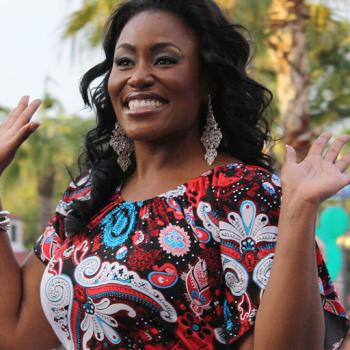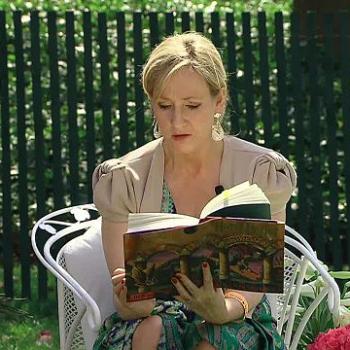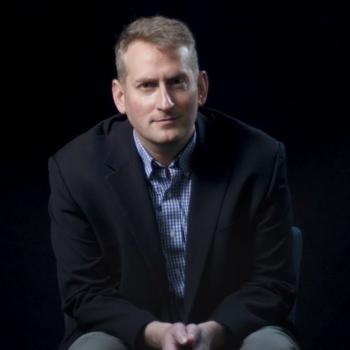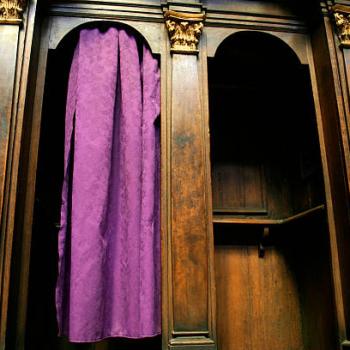[Update: I’ve added one more story to this piece related to Robin’s work with the military, because I found it interesting and moving. Also, to watch my own video tribute to Williams with additional thoughts, click here.]
Last week, mercurial comic genius and beloved actor Robin Williams took his own life by hanging. As he made his mark a little before my time, I’m really just now beginning to approach his body of work. So upon his suicide, I observed the national mourning from a place of relative detachment. Now that I’ve given myself a little crash course on his life and career, I think I’m in a better position to offer my own few cents on Robin Williams’s legacy, his death, and America’s reaction to it.
Robin Williams gave the phrase “insanely talented” a whole new meaning. He had a bizarrely brilliant, inimitable comic gift, and yet he was a fine dramatic actor whose best work ranks with the best of actors like Tom Hanks and Dustin Hoffman.
He was also a notoriously foul-mouthed entertainer and a deeply disturbed man whose suicide came as no surprise to many, after years of addiction, depression, and broken marriages. Yet despite his ugly personal demons, he was known as a warm personality who treated the lowliest extra with respect, was given to spontaneous acts of kindness, and quietly donated time and money to wounded veterans and local food banks. And though his publicly flippant treatment of God and the Bible bodes ill for his eternal destiny, privately he loved to read The Chronicles of Narnia out loud to his kids, slipped into the back row of Tim Keller’s church more than once, and even briefly confessed Christ in rehab towards the end of his life. The duration of this commitment is unclear, but it is clear that he badly needed answers and began stumbling toward them before finally turning away to enter that dark gate of abandoned hope.
What to do with such a complex personality, and such a mixed legacy? However we respond, we can and must do better than cloying sentimentalism.
Unfortunately, it seems almost nobody is capable of reacting with anything but. Meanwhile, anyone who dares to suggest that suicide is nothing to be romanticized or softened is demonized as a heartless monster. And don’t even think about suggesting that it’s… a bit odd for people who never even knew Robin Williams to weep profusely over his death as if they’d lost a dear family friend. Having a strong cultural identity attachment to Mork from Ork and/or crying over the ending of Dead Poets Society doesn’t count. Granted, some of Williams’s dramatic roles are genuinely compelling and inspirational (especially his work in the powerful, life-affirming film Awakenings). But the fact remains that America is celebrity-obsessed. Christians should be able to rise above that obsession, but in this case, it seems that they haven’t.
Has everyone forgotten that in many ways, Williams represented societal ills American Christians have been trying to push back for decades—the glorification of moral depravity, the advancement of liberal politics, etc.? Need I remind you that this is the guy who once paused mid-foul-stream at a fundraising bash for Bill Clinton to note that the child in the front row must be “learning some new words tonight”? Bluntly, all this business of enshrining Robin Williams as some kind of a saint is shallow, disingenuous nonsense that needs to stop.
However.
We can’t reduce Robin Williams to a one-dimensional villain either, because Robin Williams wasn’t a cardboard cut-out. He was a person, and persons have layers. One can honestly admire his great capacity for affection and his tendency to give back to others without expecting anything in return. He worked closely with the patients and staff of the St. Jude Children’s Hospital without once demanding a fee. His years of service to our troops were known, but not something he magnified or milked for publicity. One particularly moving moment has been going around recently: During a set in front of hundreds of troops, a sudden bugle call signaling the taking down of the flag caused every soldier in the audience to turn away from Williams and stand at attention. For a brief moment, Williams was thrown. Then he instantly realized what was happening, put the mike down, removed his own hat, and quietly observed with the rest of the soldiers. Of course, he took the chance to riff on the interruption as soon as the moment was past. But in that moment, Robin Williams understood that he was not the center of attention, and he accepted it. He accepted it willingly, with pride written on his face.
Still others have stepped forward in the wake of his death to share how they were touched by his generosity. For example, when a young female co-star was kicked out of highschool for re-locating to shoot their film, Williams wrote a letter to the school personally vouching for her academic work ethic and her character. They didn’t take her back, but his letter has been framed on the principal’s wall.
Moreover, while we must staunchly refuse to call suicide anything but a choice, our hearts can ache for any soul lost and hopeless enough to make such a choice.
This is the third and better way between mere adulation and mere demonization: tempered respect, mingled with sober compassion. Part of what it means to be a Christian is learning how to balance a love for humanity with a clear-eyed recognition of its fundamental sinfulness. Robin Williams embodied the human condition—still an image-bearer, still a soul worth saving, yet completely powerless to save himself without completely casting himself on Christ. On the one hand, he was able to recognize beauty and truth clearly enough to appreciate it in the work of C. S. Lewis and to communicate it genuinely through his dramatic acting. I can’t think of a better illustration than this famous scene from his Oscar-winning performance in Good Will Hunting (don’t necessarily recommend the film, but this performance is brilliant). His character is counseling a mouthy, amoral young genius that being able to rattle off empty facts about art, war, love and the rest is meaningless until he has touched and handled the real thing.
“You wouldn’t know about sleeping sitting up in a hospital room for two months holding her hand, because the doctors could see in your eyes that the terms ‘visiting hours’ don’t apply to you.”
https://www.youtube.com/watch?v=qM-gZintWDc
But in his own life, Robin Williams had a void he could not fill. His non-stop comic shtick hinted at that deep, underlying neediness. This profoundly sad, chilling extract from a 4-year-old interview is him at his most vulnerable, recalling how he had contemplated but decided against suicide once before:
My conscious brain went “Did you just say **** life? You know, you have a pretty good life as it is right now. Have you noticed the two houses?” Yes. “Have you noticed the girlfriend?” Yes. “Have you noticed that things are pretty good even though you might not be working right now?” Yes… “Okay, let’s put the suicide over here in ‘discussable.’ Let’s leave that over here in the discussion area, we’ll talk about that… Have you thought about buying a gun?” No. “What were you gonna do, cut your wrist with a water-pick?” Maybe. “…What are you thinking about that? Can I put this over here in the what the […] category?” Yes, let’s put that over here in what the […] “Can I ask you what you’re doing right now? You’re sitting naked in a hotel room with a bottle of Jack Daniels?” Yes. “Is this maybe influencing your decision?” Possibly. “Okay, we’re gonna put that over here… and who’s that in the bed there?” I don’t know. “Well don’t discuss this with her, she may tweet it.”
Can we now say “Rest in peace, Robin Williams?” It seems trite and unconvincing to do so. Can we mourn his self-murder as a tragic waste of a great talent and an infinitely valuable human soul? It seems impossible not to do so. And I don’t see how we couldn’t take his death as the ultimate opportunity to remind people of, in the words of Robert DeNiro’s character from Awakenings, “the gift of life.” In this scene, Williams plays Doctor Sayer (based on the real-life Doctor Oliver Sacks), while DeNiro plays a formerly catatonic patient whom Sayer has newly awoken with a test run of the drug L-Dopa. In a cruel irony, it has been revealed that Williams was experiencing the first stages of Parkinson’s disease at the time of his death—the very disease that his character in this film was treating in its most advanced form.
“They need to be reminded. They need to be reminded about what they have, and what they can lose.”












